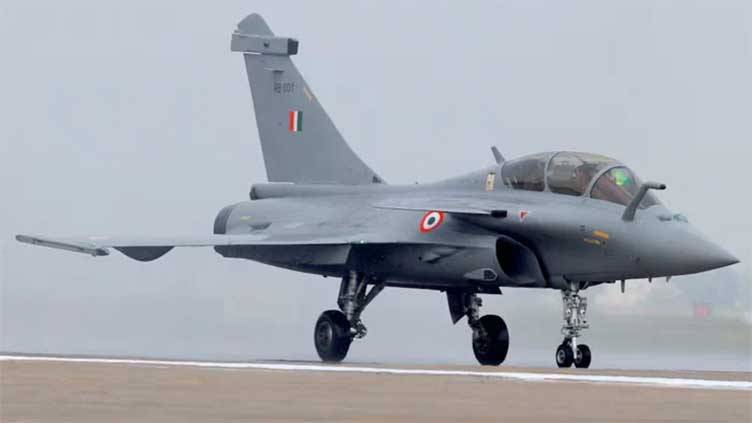China Accused of Targeting Rafale Jet Sales Post Operation Sindoor
A new intelligence report from France alleges a covert disinformation campaign against the Rafale fighter jets, orchestrated by China in the wake of India’s Operation Sindoor. According to sources familiar with the report, Chinese embassies were reportedly used to cast doubt on the reliability of the French-made aircraft, sparking tensions not only between France and China but also raising eyebrows across potential buyer nations.
Operation Sindoor, which saw a brief but tense conflict between India and Pakistan, has now spiraled into a larger geopolitical narrative, with the spotlight on what appears to be a battle not in the air, but across diplomatic corridors and intelligence briefings.
Timeline of Events
- May 2024: India conducts Operation Sindoor against Pakistan, a four-day military operation involving air skirmishes.
- Shortly after: Pakistan claims to have downed five Indian aircraft, including three Rafales.
- Following the conflict: France notes a wave of skepticism around Rafale’s performance in combat.
- June 2024: French intelligence suggests Chinese embassies, led by defence attachés, played an active role in questioning the Rafale’s value and inciting concerns among potential buyers.
What’s especially notable is the timing. The campaign came right after the supposed combat loss of a Rafale jet – a first, according to French military officials. That incident alone seems to have opened the door for diplomatic maneuvering.
Official Statements from Both Sides
“The relevant claims are pure groundless rumors and slander,”
stated the Chinese Ministry of National Defence when asked about the report.
They added, “China has consistently maintained a prudent and responsible approach to military exports, playing a constructive role in regional and global peace and stability.”
In contrast, a senior French military officer, who spoke to the Associated Press under the condition of anonymity, suggested that the aim was clear: to damage the Rafale’s reputation and reduce its sales presence, particularly in Asia.
This effort, they said, wasn’t just from Beijing directly – it involved diplomats and military attachés in Chinese embassies encouraging buyer nations to turn away from French military hardware.
Impact on Global Rafale Deals
The French defence industry relies heavily on the sale of Rafale jets. These aren’t just planes – they represent billions in arms deals and long-term strategic cooperation with several countries. So, when suspicions began circulating about the aircraft’s performance, governments in key buyer markets started to pull back, or at least pause.
Countries currently using Rafales include:
- India
- Qatar
- Egypt
- Greece
- Indonesia
- Croatia
- United Arab Emirates
- France (domestically)
All eight, according to French sources, received either direct or indirect messages fostering doubt about the integrity of the aircraft. And tellingly, this all seemed to accelerate after Pakistan’s war claim went public.
Spotlight on India’s Losses and Silence
Pakistan has maintained it downed five Indian planes. That list, they say, includes three high-value Rafale fighters. India hasn’t confirmed those figures. But that silence, or ambiguity, has left questions lingering.
General Jerome Bellanger of the French Air Force did confirm to AP that evidence pointed to three confirmed Indian aircraft losses:
- One Rafale
- One Sukhoi (Russian-made)
- One Mirage 2000 (French-made, earlier generation)
This is significant. France is acknowledging a Rafale was lost in combat for the first time. While nations often experience losses in battle, this one holds particular weight given its implications on future defense contracts.
Community and Expert Reactions
Among defense analysts, the alleged disinformation plot has sparked a range of reactions – from shrugging disbelief to strategic concern. Some say it’s not unexpected.
“To see China trying to undermine a rival weapons platform isn’t new,” said a security analyst based in London. “But to use diplomatic channels this aggressively? That’s… unusual.”
In India, public discourse also took sharp turns, with online forums filled with debates ranging from national security to the effectiveness of Rafales during peak combat pressure.
What’s Driving China’s Interest?
Perhaps the heart of this is regional strategy. France’s stronger ties with Asian nations, amplified by Rafale sales, likely concern Chinese policymakers looking to assert dominance. Whether this campaign was meant to simply reduce French influence or sway future battles over defense contracts is still a point of debate.
French observers believe they’ve already witnessed shifts in countries postponing or hesitating on further Rafale purchases.
Interestingly, as China continues to promote its own fighter jet exports, allegations like these—whether true or not—could help it build appeal not based on quality alone, but narrative control.
What Comes Next for France and Rafale?
France has yet to formally name or sanction any Chinese diplomats involved. But behind the scenes, you can bet high-level conversations are already happening.
If the French government wants to protect the Rafale’s image—and the multi-billion euro pipeline that comes with it—it may need to step away from quiet diplomacy and start correcting the record, openly and often.
And buyers? Well, they’ll likely continue doing what buyers do: hedge their bets, assess information independently, and—if anything—demand better guarantees next time round.
In a geopolitical sphere already filled with noise, this latest spat is just another reminder that battles aren’t only won in the skies. They’re fought in embassies, newsrooms, and backroom deals.
So while one Rafale may have fallen in the field, the bigger question now is: can France manage the fallout?
Key Takeaways
- French intelligence accuses China of targeting Rafale sales via embassy channels.
- Pakistan’s claim of downing three Rafales sparked international skepticism.
- France hasn’t confirmed direct Chinese government involvement, but suspects state-linked maneuvering.
- Buyers and existing customer nations are reportedly re-evaluating their deals following the Operation Sindoor aftermath.
- China denies the accusations, calling them baseless.

